Before buying drapes, you can take a good picture of the window and send it to the seller to measure the size to reduce errors.
Tools/Materials
- Circle ruler (for measurement)
- Pen (record data)
- Paper (record data)
Measure a window for drapes
If the decorative rod or track has been installed
Measure the length of the rod or the total length of the track, then measure the height from the bottom of the lifting ring to the ground. The height of the finished product is recommended to be 3 cm above the ground to avoid mopping. You can give the data to the seller.
If the Roman rod or track has not been installed
There are different measure ways according to your window and favourite drape styles.
1) Floor-to-ceiling windows - full wall to the floor:
The width measures the length of the entire wall, and the height measures the height of the entire wall (the distance from the ground and the thickness of the track are recommended to be reduced by 6cm-10cm)
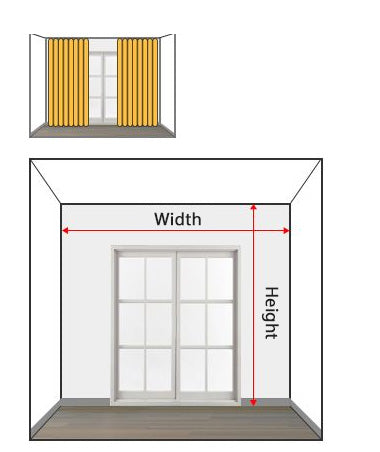
2) Floor-to-ceiling windows - partial floor-to-ceiling
The width measures the length of the window, and the height measures the height of the window (The track height/width, according to the actual situation, it is recommended to add 10cm-20cm, respectively)
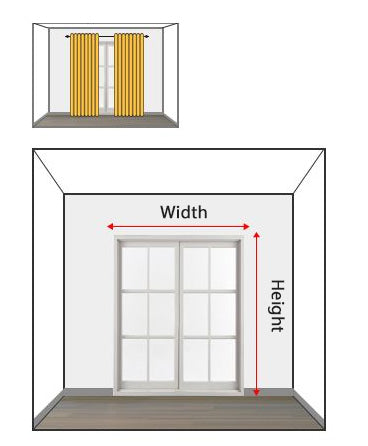
3) Back window - full wall range
The width measures the length of the entire wall, and the height measures the height of the entire wall (the distance from the ground and the thickness of the track are recommended to be reduced by 6cm-10cm)
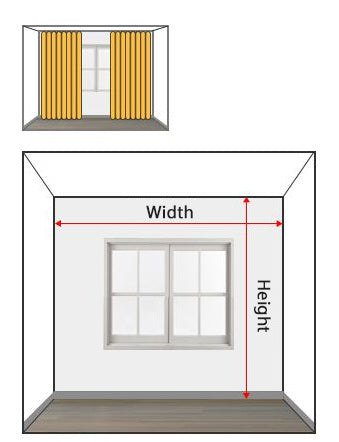
4) Back window - partial wall to the floor
The width measures the length of the window, and the height measures the distance from the top of the window width to the ground (The track height/width, according to the actual situation, it is recommended to add 10cm-20cm each side)
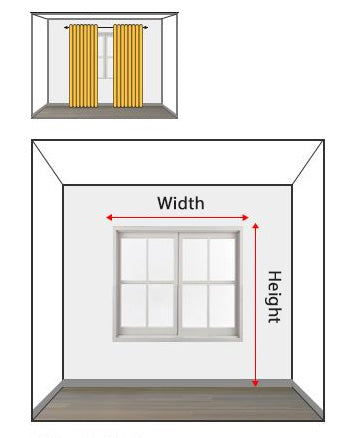
5) Back window - partial half wall range:
Width measures the length of the window, and height measures the height of the window (the track height/ width, according to the actual situation, it is recommended to increase the width and height of the curtain product by 25cm)
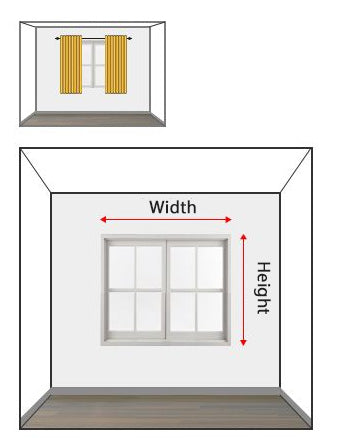
About drape folding multiple
The curtain material is 2 times, 2.3 times, 2.5 times, 2.8 times thicker. Of course, 2.8 times the material is the best-looking, but the cost is relatively high. Ordinary materials are using 2.3 times. In this case, the cost performance is the highest, and the overall aesthetics are better and the least.
